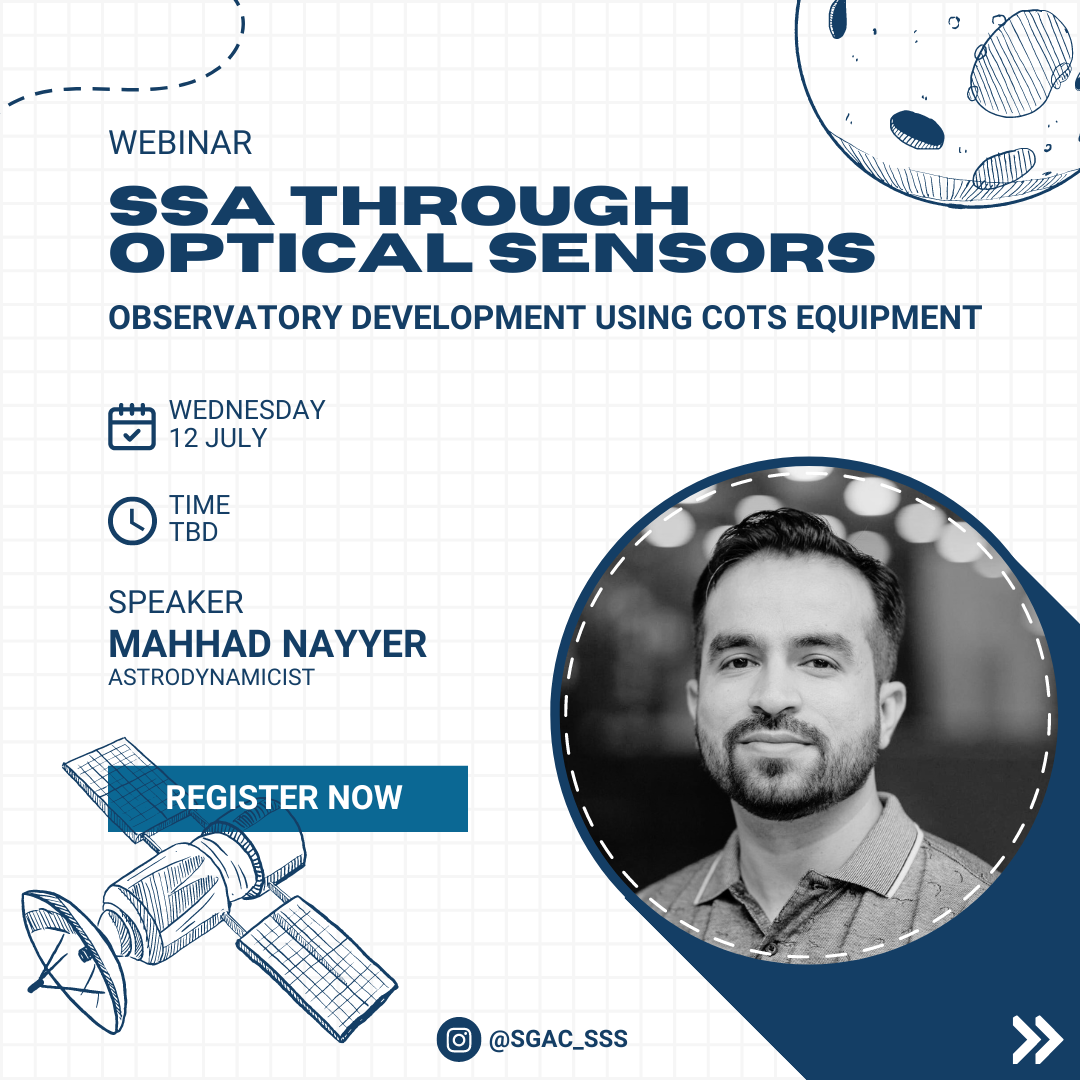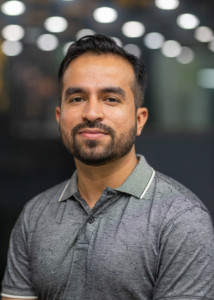

SSA through Optical Sensors – Observatory Development using COTS Equipment
July 12, 2023 @ 6:00 PM - 7:30 PM UTC+1
Proliferating space debris is the paramount global challenge that the space community is facing. At present, there is no global space traffic management system and there is a serious lack of consensus on sensitive thresholds when it comes to conjunction analysis and collision avoidance. In order to raise awareness about the nuances of the dynamic space environment and traffic management, hands-on experience with SSA sensors especially from the academic sector can bring a paradigm shift in our understanding. Using small telescopes in large quantities and in a distributed fashion for use of space objects detection, tracking, and characterization has the potential to bring valuable insights into the space sustainability domain. With an evolving distributed network controlled by a consortium of universities and young professors, the complicated technical nuances of the space debris problem can be addressed. In the last two decades, the equipment manufacturers for deep space astronomy have made significant technical progress. These days, commercially off-the-shelf and ready-to-be integrated astronomical equipment can be used to set up a research-grade SDA observatory on a low budget and in very less time. At present, there is a serious lack of a number of SDA sensors around the world. In order to bridge the gap between the number of observations needed for accurate Space Traffic Management (STM) and Space Domain Awareness (SDA), stakeholders from academia and societal domains have to play an active role. This can be initiated by the use of optical observatories for sustainability purposes. This webinar will focus on how to build an optical observatory for the aforementioned purposes. The targeted audience will be young professionals, especially from emerging countries that do not have any SDA optical observatories. By promoting awareness of the use of telescopes for SSA, SDA, and STM purposes, emerging space-faring nations can play an active role in data acquisition and processing.

Confirmed Speakers:
Mahhad Nayyer is an astrodynamicist by profession and an ardent advocate of space sustainability. Mahhad’s areas of expertise are orbital mechanics, space mission analysis and design, spacecraft design, human spaceflight, and systems engineering. In particular, Mahhad is pursuing the impactful role that emerging space economies/countries can play in the evolution of a global Space Traffic Management (STM) system/best practices. Mahhad is starting his graduate studies on the same topic at Purdue University starting Fall 2023. After high school, Mahhad was awarded the Department of State International Cadet Exchange Programme scholarship, letting him study and train at the U.S. Air Force Academy in Colorado Springs. His academic area of concentration was orbital mechanics and spacecraft design within the major field of Astronautical Engineering. Mahhad is the recipient of several young professional awards and accolades including IAF Emerging Space Leader 2022 and AIAA ASCEND Diverse Dozen 2022. In 2020, Mahhad enrolled in a postgraduate master’s programme in Space Systems Engineering and Business Engineering offered by Graz University of Technology, Austria. As the astrodynamics lead, Mahhad led his cohort’s SMAD design for a sub-geo CubeSat constellation capable of providing detection, tracking, characterisation, and inspection services for geostationary and nearby anthropogenic space objects. His graduate research focussed on sensor pre-processing, data acquisition, image post-processing, orbit determination, cataloguing framework, and correlation of geostationary objects. Mahhad is an active member of SSS Project Group and aims to contribute in projects related to space sustainability.



